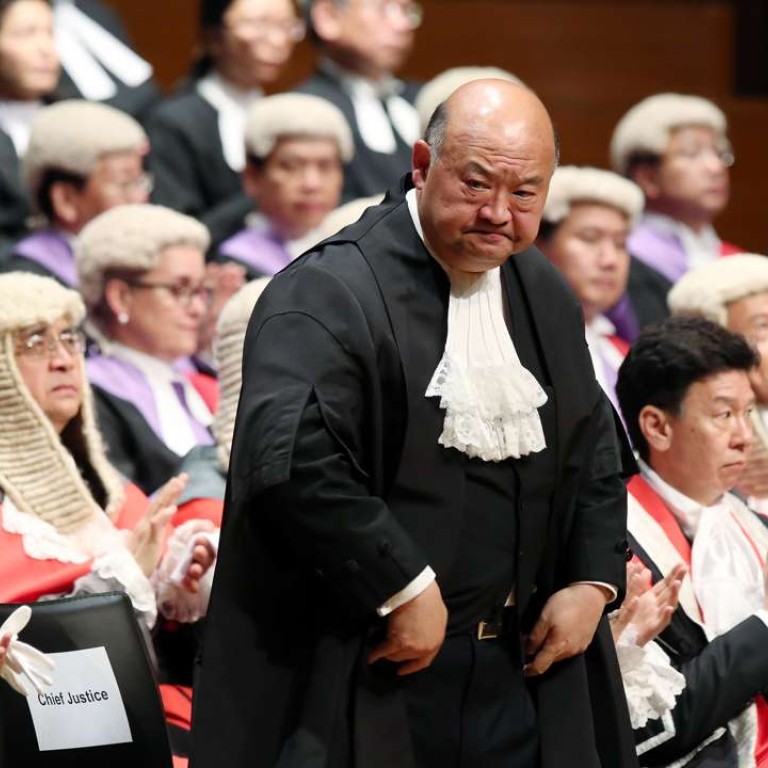
Double pay rise and extra benefits to ease the strain on Hong Kong’s judges
Government offers generous package in bid to attract more talent to the bench amid recruitment problems
Hong Kong’s judges will get a double pay rise plus extra allowances in an effort to combat persistent recruitment difficulties and safeguard rule of law in the city.
As of mid-November, nine out of 34 Court of First Instance posts were vacant. And in March, only 162 of the city’s 200-strong judicial team were filled on a permanent basis.
The government warned on Wednesday that the problem could get worse as 28 judges would reach retirement age by 2019.
Under a deal approved by the Executive Council on Wednesday, the salaries of all judges will be increased by 4.85 per cent, backdated to April.
Magistrates and District Court judges will get an extra 4 per cent, dating back to September 1, while justices of the High Court and above can expect an additional adjustment of 6 per cent.
High Court and Court of Final Appeal justices, who are currently offered accommodation on The Peak or in Deep Water Bay, will be offered more if instead they opt for a taxable cash allowance – at least HK$161,140, up from the current HK$51,420.
All judges, who have free access to public hospitals, will also be covered by an allowance – ranging from HK$19,300 to HK$53,960 a year, depending on age – to buy medical insurance, and an improved education allowance for their children.
A Court of Appeal judge is currently paid HK$257,000 a month, while a Court of First Instance judge earns HK$244,950. This falls to HK$202,450 in the District Court and HK$111,000 for magistrates on the lowest rung.
The stepped-up incentives – resulting from a 2015 study and two reviews this year by the Standing Committee on Judicial Salaries and Conditions of Service – come against the backdrop of a widening pay gap between lawyers and judges, particularly in the Court of First Instance, District Court and magistracies.
But the package is still subject to the Legislative Council’s approval and it is expected to be tabled before its Finance Committee next year.
A document handed to lawmakers on Wednesday revealed that while the number of court cases had remained steady over recent years, the city’s judiciary had faced more complex cases, including important issues of public law.
The study conducted last year found Court of First Instance judges had been paid substantively less than lawyers practising in the private sector, with the gap expanding from 42 per cent in 2010 to 60 per cent in 2015.
However, once a barrister or solicitor has become a judge in the District Court or above, they would not be allowed to return to private practice.
Chief Justice Geoffrey Ma Tao-li, who welcomed the proposals, said: “I hope that with the adjusted pay together with the enhanced packages for [judges and judicial officers], there will be a positive impact on the recruitment of judges, particularly at the level of the Court of First Instance of the High Court.”
Former lawmaker Alan Leong Kah-kit, a senior counsel, agreed it was a reflection of the judges’ hard work and would help attract talent.

